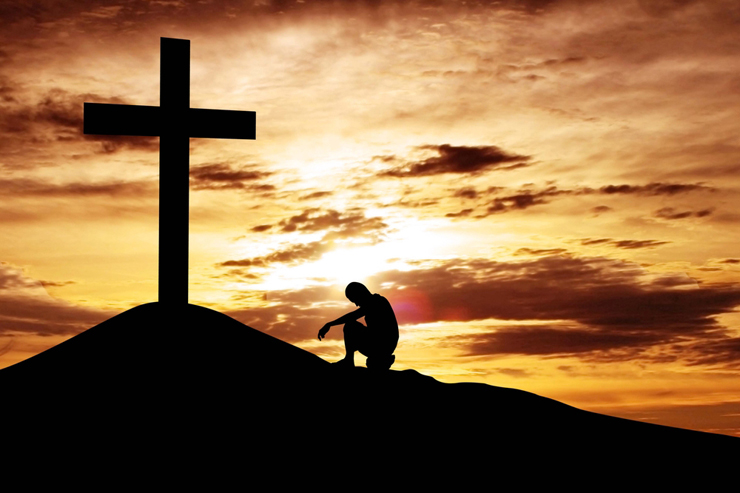From Memory to Hope
by Judith Costello | January 13, 2015 12:01 am
 [1]In the modern world people often talk about the importance of harmonizing mind, body and spirit. But in the 1500s, St. Teresa referred to a different three. She said we need to train the “faculties of the intellect, will and memory.” Her breakdown, regarding divisions of the Self, is more useful for the true spiritual journey. In her framework, these three faculties, or “abilities” which are specific to the HUMAN person, correspond to the theological virtues.
[1]In the modern world people often talk about the importance of harmonizing mind, body and spirit. But in the 1500s, St. Teresa referred to a different three. She said we need to train the “faculties of the intellect, will and memory.” Her breakdown, regarding divisions of the Self, is more useful for the true spiritual journey. In her framework, these three faculties, or “abilities” which are specific to the HUMAN person, correspond to the theological virtues.
The Intellect corresponds to the theological virtue of Faith. We can reason through the evidence of God’s presence in the complexity and symmetry of Creation and the knowledge of history. Reason and faith are the two wings of the eagle, said Pope St. John Paul II. We need the intellect and train it by the proper choice of knowledge acquisition. We are also reminded that our intellect, as powerful as it is for processing information, is but a speck of dust before God! And that is humbling.
The Will corresponds to the virtue of Charity. In pursuing a journey toward God, fueled by faith, we use the power of our Will to act as Jesus did. The Will must be trained to be used for the good and to detach from the things of the world. When the will is trapped by sensory desires, it needs to be called back to the true and worthy place it has in bringing us closer to God.
The last of the faculties is the Memory. It is here that I’ve always gotten stuck. I had decided a few years ago to stop responding to memories that pop up unbidden. Before that, I would spend time thinking about “what if” or going over old memories again and again in a fruitless absorption in nostalgia. I wondered why the great saint would include Memory in the list of necessities in the spiritual journey.
On a recent weekend, our Third Order Discalced Carmelites were on retreat with Fr. Jerome Earley, OCD, who talked about the connection between “memory and hope.” The Memory, he said, can be trained to focus on Jesus. We remember the gifts God has given us. We remember the touches from above—the evidence of His ongoing presence. We remember the life of Christ. We remember our heritage of faith. We use our spiritual past, even our sinful past, to push us forward in HOPE!
Hope, Fr. Earley said, is the virtue needed for these dark times. Hope is our reassurance that there is a goal we are striving for that is worthy. We can be passionate in longing to be with Jesus. We can train our Memory to help us more carefully align our lives toward Heaven!
Memories are in the past, but they are also connected to the future. Even in the old “what if” game, we are taking something from memory in order to fantasize about what could have been. Our hearts are geared toward that sense of movement. We ARE headed somewhere. So we need to evaluate our progress and continually renew our understanding of the ultimate goal.
The Memory is a wily thing: it can be very distracting and troublesome. (So can the Will and the Intellect, or course.) Nostalgia for the past is a trap. Memories can be intrusive when they rise up unbidden and call us away from the duties of the present time. But, I am beginning to see that Memory, as an ability or faculty of our minds, can also be a blessing!
Fr. Earley said we should readily hang onto the memories that are positive and revealing of God’s glory. But when it comes to negative memories, we need to be more careful. These memories can be purified…they actually can be a grace as we recognize mistakes, sins, problems, and then use the will to open up self knowledge and move us forward in the recognition of new choices and renewed commitment. Father said that if we are plagued by darker memories we should focus on the memory of the Resurrection. Thus we come back to Hope. But if we are feeling prideful, languishing in the successes we have gained, then we need the memory of the Passion.
Additionally, I think, our angels sometimes bring to mind a person from the past, because that person needs prayer immediately, in the present! I try to pay attention to that and say a prayer without dwelling on the details of how I was connected to that person in the past. Clearly in these times of moral chaos, when homosexuality is considered a “civil right” to be championed while traditional marriage is being dismissed, we need a strong sense of HOPE. We have hope that God will triumph and the world, even in darkness, has available Light.
I find it interesting that in the modern attempts to harmonize mind, body and spirit, a fourth entity is often used as the over-riding monitor: Feelings. “How does it make you feel?” asks the therapist. In St. Teresa’s system of peace, emotions are always reined in by the intellect. Those who truly understand the journey through “this valley of tears” (Salve Regina) know that emotions are not to be fed.
Instead, if we train our intellect, will and especially our memory, the Holy Spirit will guide us Home.
- [Image]: http://www.integratedcatholiclife.org/wp-content/uploads/discipleship-and-the-cross-featured-w740x493.jpg
Source URL: https://integratedcatholiclife.org/2015/01/costello-from-memory-to-hope/